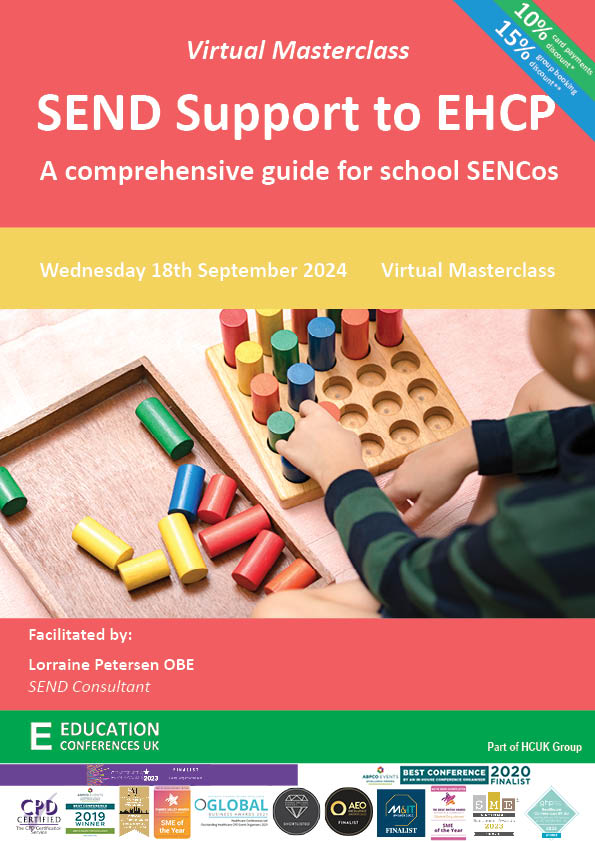This masterclass has been designed to guide you through every part of the process of providing support to pupils with potential special educational needs, from identification through to needs assessment and applying for EHCPs.
The Children and Families Act 2014 and the SEND Code of Practice 2015 clearly set out the statutory responsibilities of schools and local authorities in providing additional and or different support and provision for children and young people with special educational needs.
This is based on three elements of support:
High quality teaching, adapted and adjusted to meet individual needs
SEN Support provides additional and/or different support within a mainstream classroom
Education, Health and Care Plan to support the most complex needs of children and young people in mainstream and specialist settings
The process that schools should follow to ensure that a student gets the right support can be difficult for SENCOs in schools. Although the law is very clear about what should happen, local authority policies often confuse and hinder the processes.
By the end of this day, you will have a comprehensive understanding of what schools should do to ensure that a student in their school is receiving the right level of support.
Key Learning Objectives
This masterclass will enable you to:
Take the first steps in supporting children with possible SEND
Understand the impact of high-quality teaching for pupils with SEND
Go through the process of identification of need where there is cause for concern
Equip yourself with the knowledge you need to move to the next step of support
Better engage with parents and carers to provide the best support possible for pupils
Understand the role of the classroom teacher and the importance of effective deployment of support staff
Undertake appropriate record keeping
Understand the process of applying for an EHCP and how best to achieve this
Be prepared for making annual reviews of EHCPs
Facilitator
Lorraine Petersen has 25 years’ experience in the mainstream school environment as a Teacher and Headteacher. From 2004 – 2013 Lorraine was CEO of nasen, a charitable organisation supporting all those who work with children and young people with SEND. She worked on a number of projects with various agencies including the Department for Education, the National College of Teaching and Leadership and UKTI, not to mention being a chair, keynote speaker and workshop facilitator at numerous national and international events and conferences





